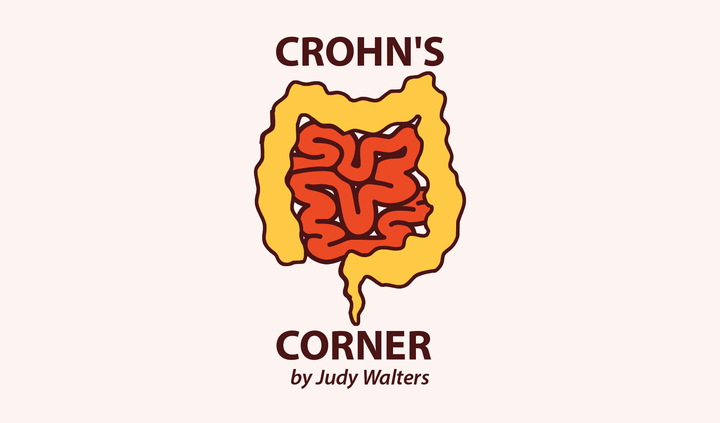So, I was all the way down to a 5 mg dose of prednisone last week and the inevitable happened; I started feeling sick. I had been feeling pretty good since my late December flare-up, other than some bad muscle weakness and joint pain, which I knew I could be from Crohn’s or the medication itself. I had a good amount of energy and was able to do most of the things I had scheduled. I wasn’t nauseous; I didn’t need Percocet.
Then I was on the way to lunch with a friend one day recently. We met halfway, about a 45-minute drive for me, and I noticed — just slightly — those telltale weird feelings I get at the start of a flare-up. I ate lunch with no problem, but by the time I got home, I had to go right to bed — where I stayed for two days.
My doctor and I determined that I needed a 20 mg dose of prednisone to cover the flare, which is actually low for me at the beginning of a flare. I was happy to start taking it.
But I was sad, too, because I had worked so hard to get my prednisone dosage way down. Sad because it meant the Stelara probably is still not working, and within three days, even though I was barely eating anything, I had gained so much weight that my pants were tight, making me even more uncomfortable.
I was able to get out of bed pretty quickly this time, since I caught the flare-up at the very beginning. I went to see my doctor and, as usual, we debated prednisone and Stelara and what else there was. As usual, my options are pretty bleak.
I told the doctor that sometimes I feel like I should just stay on prednisone, but all of the long-term side effects are so bad. He responded that, no, I didn’t want to be on it forever. He suggested we consider Stelara every four weeks instead of eight, if the insurance would approve it. Or another IV infusion of it, but again, only if the insurance would approve it. (He doubts either of these approvals can actually happen.) That’s about where I’m at. Sigh.
So, now I’m going to be on prednisone for weeks and weeks again. And I’m going to continue to wonder what else I can do, and hope that I feel back to normal soon.
Note: IBD News Today is strictly a news and information website about the disease. It does not provide medical advice, diagnosis, or treatment. This content is not intended to be a substitute for professional medical advice, diagnosis, or treatment. Always seek the advice of your physician or other qualified health provider with any questions you may have regarding a medical condition. Never disregard professional medical advice or delay in seeking it because of something you have read on this website. The opinions expressed in this column are not those of IBD News Today, or its parent company, BioNews Services, and are intended to spark discussion about issues pertaining to inflammatory bowel disease.



I’m sorry you’re having such a hard time.It sounds like your doctor’s trying to help but without insurance approval, his hands are tied. Perhaps, reading Breaking the Vicious Cycle by Elaine Gottschall might help. Also, Dr. Suskind from Seattle Children’s Hospital is using her methods in studies utilizing the SCD diet for pediatric IBD patients. Maybe your Dr. could find out if there are adult studies through the gastroenterology department at the University of Washington you might participate in. Also, if your Dr considers Humira as a possible treatment option, Abbvie Co. has a patient assistance program. I hope you find something that helps.
Hi Anna:
Thank you for your comments. My doctor is actually on the forefront of all the trials — he has contacts at the NIH and pharmaceutical companies — and works in a research hospital where there he starts his own trials sometimes. So I am in a good place in getting the newest medications and treatments available to me.
So I am in a good place in getting the newest medications and treatments available to me.
Also, I’ve already tried Humira.